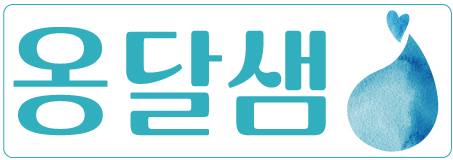지속가능한 소비-생산
Goal 12. Ensure sustainable consumption and production patterns
지속 가능한 소비와 생산 양식 보장
12.1 Implement the 10-Year Framework of Programmes on Sustainable Consumption and Production Patterns, all countries taking action, with developed countries taking the lead, taking into account the development and capabilities of developing countries
개발도상국의 발전 상황과 역량을 고려하면서, 선진국 주도로 지속 가능한 소비와 생산 양식에 대한 10년 계획 프레임워크 프로그램(10-Year Framework of Programmes on Sustainable Consumption and Production Patterns)을 모든 국가가 이행한다.
12.2 By 2030, achieve the sustainable management and efficient use of natural resources
2030년까지 천연자원의 지속 가능한 관리와 효율적 사용을 달성한다.
12.3 By 2030, halve per capita global food waste at the retail and consumer levels and reduce food losses along production and supply chains, including post-harvest losses
2030년까지 유통 및 소비자 수준에서의 전 세계 인구 1인당 음식물 쓰레기 발생량을 절반으로 줄이고, 출하 후 손실을 포함한 식품의 생산 및 공급망에서 발생하는 식품 손실을 감소한다.
12.4 By 2020, achieve the environmentally sound management of chemicals and all wastes throughout their life cycle, in accordance with agreed international frameworks, and significantly reduce their release to air, water and soil in order to minimize their adverse impacts on human health and the environment
2020년까지 국제사회에서 합의된 프레임워크에 근거하여 화학물질 및 유해폐기물을 모든 주기에서 친환경적으로 관리하며, 인간의 건강과 환경에 대한 부정적인 영향을 최소화하기 위해 대기, 물, 토양으로의 유출을 현저하게 줄인다.
12.5 By 2030, substantially reduce waste generation through prevention, reduction, recycling and reuse
2030년까지 예방, 감축, 재활용 및 재사용을 통해 쓰레기 발생을 대폭 줄인다.
12.6 Encourage companies, especially large and transnational companies, to adopt sustainable practices and to integrate sustainability information into their reporting cycle.
기업, 특히 대기업 및 다국적기업이 지속 가능한 실천계획을 그들의 보고 체계에 채택하고 지속 가능성에 대한 정보를 통합하도록 장려한다.
12.7 Promote public procurement practices that are sustainable, in accordance with national policies and priorities
2030년까지 국가의 정책과 전략에 따라 지속 가능한 공공조달 시행을 확대한다.
12.8 By 2030, ensure that people everywhere have the relevant information and awareness for sustainable development and lifestyles in harmony with nature
2030년까지 모든 사람이 지속 가능한 발전과 자연과의 조화를 이루는 생활양식에 대해 인지하고 필요한 정보를 가질 수 있도록 보장한다.
12.a Support developing countries to strengthen their scientific and technological capacity to move towards more sustainable patterns of consumption and production
지속 가능한 소비 및 생산 패턴 구축을 위한 개발도상국의 과학기술 역량강화를 지원한다.
12.b Develop and implement tools to monitor sustainable development impacts for sustainable tourism that creates jobs and promotes local culture and products
일자리를 창출하고 지역의 고유 문화와 특산품을 알리는 지속 가능한 관광이, 지속가능발전에 미치는 영향을 모니터링 할 수 있는 수단을 개발하고 이행한다.
12.c Rationalize inefficient fossil-fuel subsidies that encourage wasteful consumption by removing market distortions, in accordance with national circumstances, including by restructuring taxation and phasing out those harmful subsidies, where they exist, to reflect their environmental impacts, taking fully into account the specific needs and conditions of developing countries and minimizing the possible adverse impacts on their development in a manner that protects the poor and the affected communities
개발도상국의 특수한 필요와 여건을 충분히 고려하고 빈곤층과 영향을 받는 지역 공동체를 보호하는 방식으로 개발도상국의 발전에 미칠 악영향을 최소화하면서 조세 제도를 개혁하고, 해로운 보조금이 존재하는 경우 그에 따른 환경 영향을 반영하기 위해 이를 단계적으로 폐지하는 등의 방법으로 국가별 상황에 따라 시장 왜곡을 제거함으로써, 낭비를 조장하는 비효율적인 화석연료 보조금 제도를 합리적으로 개선한다.

